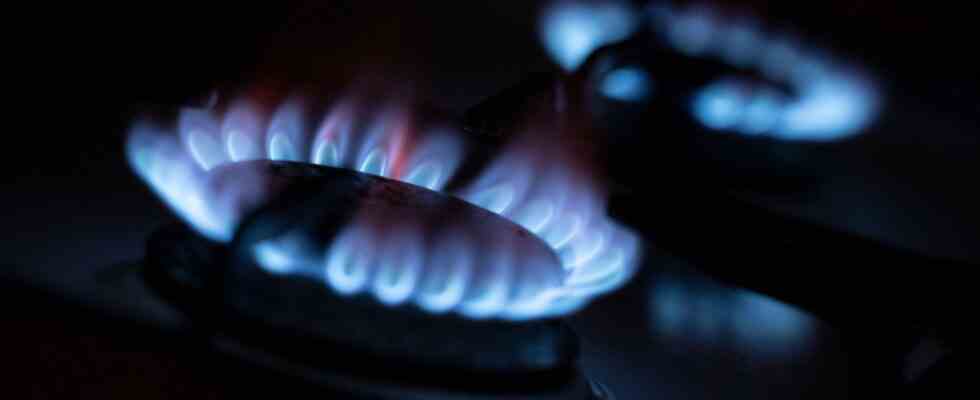interview
Status: 08/25/2022 5:16 p.m
Energy prices are exploding, and gas customers are being hit particularly hard. And now they have to pay an extra fee. That is unfair and constitutionally questionable, says the energy law expert Riedel in an interview.
tagesschau.de: The banks were saved in the financial crisis, Lufthansa and TUI in Corona times with taxpayer funds – even by those who had never had anything to do with the companies or used their services. The situation is different when it comes to rescuing systemically important gas companies. With the gas levy created for this purpose, only customers who heat with gas are asked to pay – but not those who use oil, pellets or other forms of energy. Is that fair?
Martin Riedel: No, I do not consider this to be fair and also to be constitutionally problematic with regard to the principle of equality. Incidentally, by no means should all gas companies that receive payments from the gas procurement levy – at least around 34 billion euros – be classified as systemically important.
To person
dr Martin Riedel is a lawyer specializing in energy law. He works in the energy and infrastructure sector in an advisory and forensic capacity for ministries, cities and public utilities, airports, clinics, industrial companies and housing associations, among others.
Long-term contracts benefit
tagesschau.de: Let’s take a closer look at the violation of the principle of equality: What about housing associations, for example, where tenants heat with either gas or coal?
reed: As a rule, the tenants asked to pay do not even know whether their heat is produced from coal, gas, oil or in some other way. If one block of houses is supplied with heat from gas and the other block with heat from oil, according to the current model only those customers whose heat is generated from gas pay the bill; the random principle applies here, because the tenant usually does not even know how his heat is produced and he did not choose his apartment according to this criterion.
tagesschau.de: Some customers have been able to buy gas with long-term contracts at very low prices, others now have to pay ten times as much – is it permissible for everyone to pay the same levy now?
reed: Here, too, I have major concerns. If a gas customer has already bought his gas for 2023 at 20 euros/MWh in 2021, charging the gas surcharge may be justified. A customer who now has to buy his gas for ten times as much – currently around 240 euros/MWh – is already paying for the costs of the crisis through this price explosion. If he now also has to pay the additional gas surcharge, he is doubly burdened by the crisis.
dr Martin Riedel, lawyer for energy law, on the legal situation of the gas surcharge
tagesschau24 09:00 a.m., 25.8.2022
Violation of European law?
tagesschau.de: There are also legal concerns with regard to European state aid law – to what extent?
reed: In principle, so-called companies in difficulties (UIS) may not receive any state aid or only under the strict conditions of European law. Uniper, for example, will have to be classified as a UiS, so that strict state aid criteria apply here. I cannot see that the criteria are met.
tagesschau.de: The federal government says the surcharge is fair because only gas customers can save gas and thus control consumption. Is the argument plausible?
reed: At first it sounds plausible. As already explained, most heat customers as tenants do not even know whether their heat is produced from gas, coal, oil or in some other way. The landlord may know this; but often only the heat supplier as the producer of the heat. In this respect, this steering instrument often misses the receiver horizon of the heat consumer.
The Federal Constitutional Court could overturn the levy
tagesschau.de: What would fair funding be like?
reed: A transparent state funding that could be financed, for example, through a special solidarity tax and levied on all citizens. The poorer sections of the population and also distressed companies and trades could then apply for reductions or exemptions.
tagesschau.de: What do you expect – will the Federal Constitutional Court overturn the current gas levy?
reed: Yes, but it will be a longer way. A civil court would have to suspend an action for payment of the gas levy and could then submit the set of rules to the Federal Constitutional Court. Otherwise, an affected company or another end user can only take action against a supreme court decision by the Federal Court of Justice.
tagesschau.de: Should it come to that: What happens if customers have already paid?
reed: It depends on how the Federal Constitutional Court decides. It can establish illegality/unconstitutionality from the start and then order a reversal; But it is more likely that the legislature will then be given a quasi-order to change the rules and the gas surcharge.
tagesschau.de: Does it make sense to only pay conditionally?
reed: Unless changes are made to the current gas levy regulations, I assume and can only recommend that the heat generators and landlords or housing associations in particular only make payments with reservations.

